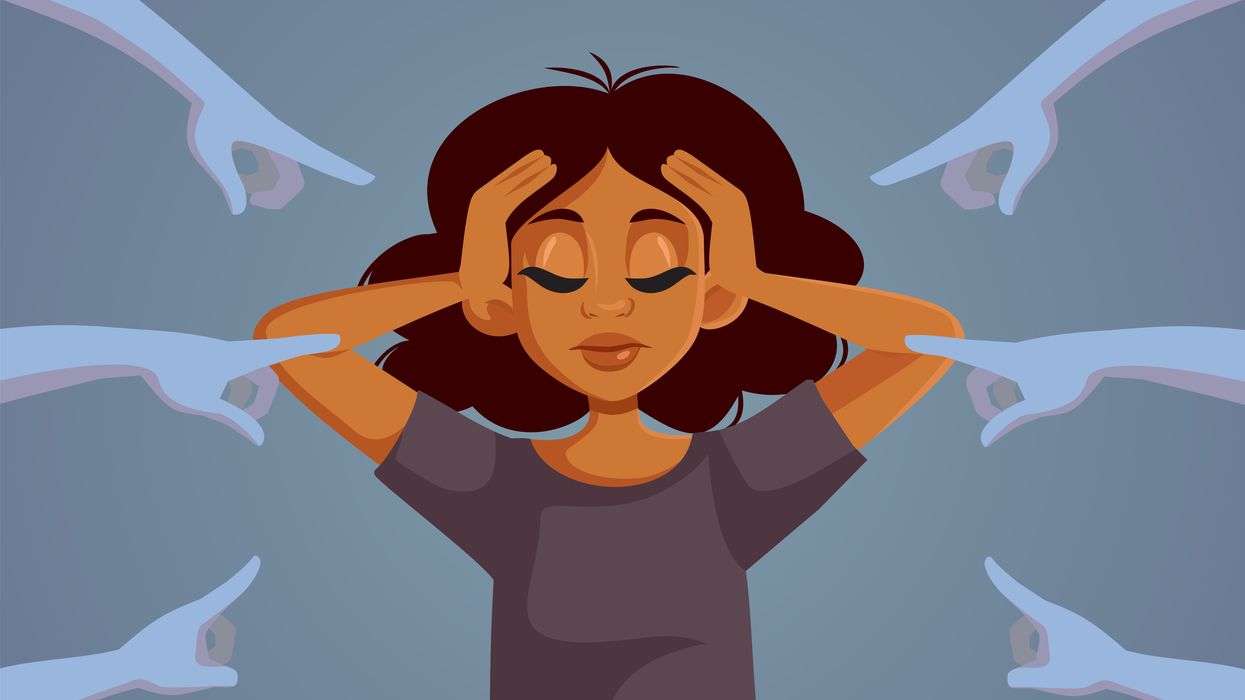Sennet is an associate dean of diversity, equity, and inclusion and an associate professor of piano at University of Illinois Urbana-Champaign. She is a public voices fellow with The OpEd Project.
“But that wasn’t my intention.” “I am a good person.” “I am not racist.”
As a Black female classical pianist who also serves as a diversity, equity, inclusion, and access administrator in higher education, I frequently hear of people’s “good intentions” when they make overtly racist statements in both arenas.
As an educator for more than 15 years, I am still discouraged by how often people quickly leap to such a declaration – also a microaggression – as a means of avoiding responsibility. Rather than facing the truth of their words’ impact, they would rather minimize the experience, avoid confronting biases and instead question my credentials.
I am consistently on the receiving end of the specific phrase, “That wasn’t my intention,” within both higher education and arts circles. These encounters are what author Robin DiAngelo identifies in her 2021 book, “ Nice Racism: How Progressive White People Perpetuate Racist Harm.”
Despite being often overlooked, many women of color in academia are told to “let it go.” Some of the commonly heard phrases with problematic intentions are: “calm down,” “breathe,” and “you are overthinking.” Such dismissive phrases can have a detrimental effect on well-being.
My experience is as a Black female, but the transgressions I refer to apply to many forms of discrimination whether perpetrated against people because of their race, religion, gender, sexual identity or ethnicity. A survey by the Pew Research Center indicates the trends that can be seen with Black, Latinx and Asian people. Sadly, what is missing from this survey: discrimination against those who are Muslim, Jewish, LGBTQIA+ and women.
A new study by McKinsey reveals that “microaggressions have a large and lasting impact on women.” Fewer faculty of color are promoted, and less frequently, than white faculty in academia.
A 2023 Boston University study shows that Black women who perceive racism on a regular basis are 38 percent more likely to have a stroke.
Having to witness others’ defensiveness is frustrating and does not move the conversation forward. Whether or not someone is a “good person” or “not racist” is of little consequence during these moments. This makes it difficult for many faculty of color and artists to wonder when and if advocating for ourselves is the best course in every situation.
Historically, Black women are advised by family members, friends, mentors,and colleagues to be strong and refrain from showing emotions in the face of racism. Clinical psychologist Inger Burnett-Zeigler, a member of the Northwestern University faculty, highlights the many difficulties that Black women experience in her book, “ Nobody Knows the Trouble I’ve Seen: The Emotional Lives of Black Women,” and provides recommendations for healing and self-care.
Burnett-Zeigler also affirms that microaggressions, “everyday, subtle, intentional and sometimes unintentional interactions or behaviors that communicate racism and discrimination,” are among the many stressors.
Research shows the topic of intentions is philosophical and complex.
Stating one’s “good intentions” is a mere excuse that attempts to re-center the conversation from the injured party to the one responsible for injury. Claiming to be one of the “good white people” also tends to absolve people of listening to feedback and changing behavior.
As someone who frequently performs music by Black composers, it is troublesome when I am always expected to be “rapidly on call” to educate others, usually in passing before another person’s performance or talk.
It is equally hurtful when I respond to someone who notes whether I am smiling at a faculty meeting. I was once unjustly removed from a teaching duty – by email – without due process. Despite being reinstated years later, people’s “intentions” still led to me being excluded and unfairly treated. At the very least, these incidents have been demeaning and patronizing.
Statements of problematic intentions are the ultimate excuses, and many educators, students and artists of color suffer the negative impact.
In their 2015 book, “ Despite the Best Intentions: How Racial Inequality Thrives in Good Schools,” authors Amanda E. Lewis and John B. Diamond highlight the many concerns of inequality that arise in the K-12 school system despite attempts to change.
Similarly, Black artists continue to be underrepresented in orchestras — less than 2 percent of performers – despite increased awareness and the best intentions.
Both diverse arts programming and interdisciplinary collaboration in higher education are a start to building more awareness of equity and belonging.
However, simply boasting of including one Black composer on a concert program if the composer or their story remains unnamed or unrecognized has limited impact. University administrators also need to consider working towards fostering a sense of belonging in the classroom, faculty meetings and informal spaces.
Sure, we are all human beings. Misunderstandings can occur and making mistakes is a part of everyone’s human experience. However, simply defaulting to “intentions” as a defense mechanism prevents people from understanding the complicity of racism and sexism as well as working towards addressing and changing behavior.
To raise awareness of the many forms of racism, there must be ongoing awareness through personal or group reflection as well as checking in with colleagues and students. Recent research reveals the importance of acknowledging our true selves.
Meaningless intentions are hurtful. It is meaningful when people sit with the discomfort of being called out on harmful intentions before acting on trying to absolve themselves.
Yes, it can be very uncomfortable to be called out. Instead of defaulting to intention, it is better to take a step back and listen to what the other person is saying. The hope is that there is a willingness to address hurtful words or actions. Acknowledgement is a start, and it is one way in which trust can be restored.



















Trump & Hegseth gave Mark Kelly a huge 2028 gift